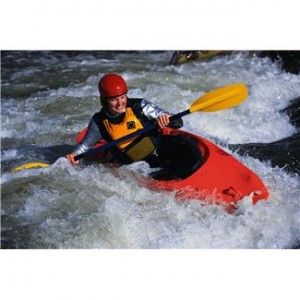
Q: What kinds of sessions could I offer to help the youth in my programs be prepared for entering the ‘real world’?
A: This is such a great question. We often work on skills with youth that directly affect their current circumstances.
But for some of the youth in our programs, the future is rushing towards them. Maybe they’re finishing high school or secondary school or are transitioning to independent living after foster care; they’ll need skills for the future that are vitally important to their long-term success.
Rather than trying to come up with sessions full of things you think the youth should be learning, first identify a few specific skills that your youth may require.
Ask them if there is anything they want to learn, try or practice during your sessions. Some skills may be complex, like creating a budget and completing a grocery shop, while others may seem simple but are important, such as mailing something from the post office or setting up an email account.
Once you’ve identified the skills, you can begin to group some together and create youth work session plans by creating worksheets, booking guest speakers, finding role plays or even planning outings to practice the skills and provide time for answering questions.
Here are some skills (there are so many – these are just a sample) that might help youth when moving in the ‘real world’ and living independently:
- Maintaining an Appropriate Appearance
- Advocating for Oneself
- Following Through on Agreements or Contracts
- Creating a Resume or CV/ Completing Application Forms
- Managing Time
- Meal Planning
- Resigning from a Job or Project
- Budgeting and Managing Money
- Interviewing for a Job
- Seeking Professional Assistance/ Using Community Resources
- Tolerating Differences
- Using Strategies to Find a Job
- Cooking
- Formal Letter Writing
- How to Set Up Utilities
- Using Resources to Research the Cost of Items (Cars, Insurance, Food, Household Items, etc.)
As you may see from the list above, a natural session to run based on these skills would be ‘Job Skills – How to get, keep and leave a job appropriately.’
Or you could have a session comprised of ‘Household Management Skills’ such as securing an apartment, setting up the utilities, furnishing it on a budget, creating a household budget, cooking skills, etc.
Running a session on other important skills like writing letters of complaint, advocating for their rights (and knowing where to go and how to do that appropriately), how to use community resources from public transport and emergency services to accessing shelters and welfare or benefits, may prepare them for life’s ups and downs in the future.
While we hope our youth may not need to use some of these skills or services, it provides them with the knowledge of what to do in an emergency and will help them advocate for themselves as an adult and hopefully keep them safe in the future.
These are just a few ideas on how to run sessions that equip youth for the ‘real world.’ The key is to look beyond just financial skills and job skills (although those are very important), to life skills that youth may have never had a chance to learn or practice.
By giving them real life examples, take-home worksheets to refer back to and real opportunities to practice the skills and talk with professionals in the field, you’ll be preparing them in a practical way – not just in theory – and will set them up for long-term future success.
Question: What skills or session plans would you add to the list? Add your thoughts in the comment section below.
You can also connect with us by:
- Signing up to receive our posts via email
- Following us on Twitter
- Liking us on Facebook
- Signing up to our RSS feed